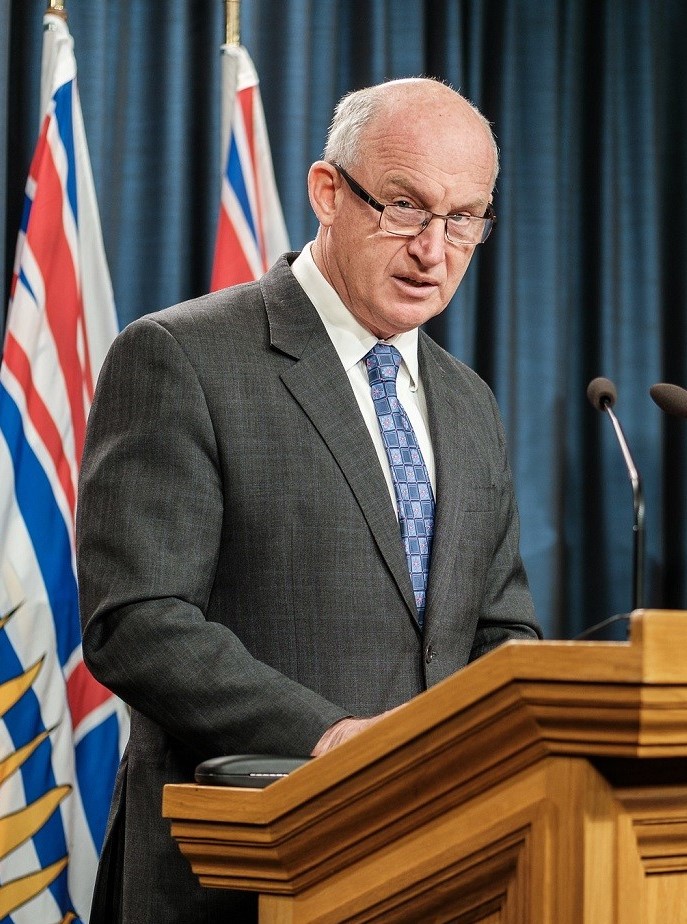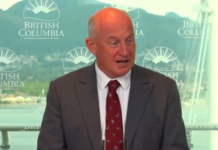CHANGES introduced to the Police Act will improve governance and oversight of policing as part of the Province’s work to make systemic improvements to the policing and public safety landscape in B.C.
“We count on our police to respond in difficult situations to keep us safe and there are ongoing conversations on how to change policing to keep pace with a changing world, particularly for many Black, Indigenous and other people of minority communities who have had negative experiences with the police,” said Mike Farnworth, Minister of Public Safety and Solicitor General, on Thursday. “By focusing on changes to municipal policing, we are setting the foundation for a modern policing system that is fair, equitable and responsive to all communities.”
The legislation makes changes to municipal police governance, oversight and police superintendence. The changes address recommendations from the 2022 Special Committee on Reforming the Police Act and from the 2019 Special Committee to Review the Police Complaint Process, and addresses legislative changes requested by the Office of the Police Complaint Commissioner.
Changes to governance will allow local governments to determine who their representative will be on their police board and will allow members of the police board to elect their chair and vice-chair. Currently, the mayor is automatically the local government representative and the chair of the police board.
The legislation will also strengthen oversight of municipal police with several changes, including allowing the police complaint commissioner to call a public hearing earlier in misconduct investigations, and providing the police complaint commissioner authority to conduct systemic reviews and investigations into the causes and contributors of police complaints.
The Province is continuing to work on other policy and legislative reforms called for by the 2022 Special Committee on Reforming the Police Act, including police training, provincial governance and Indigenous policing models. This work involves broad engagement with Indigenous partners, local governments, policing representatives, police oversight agencies, and community-based and advocacy organizations that will inform the work of further efforts to change policing in the province of B.C.
The work being undertaken in Police Act reform is aligned with Section 3.11 of the Declaration on the Rights of Indigenous Peoples Act. The Province has committed to developing and implementing policing reform that is responsive to the diverse needs of all communities and fosters increased public trust in policing, particularly for Indigenous and racialized communities.
Ronald J. Macdonald, chief civilian director, Independent Investigations Office (IIO) of B.C., said: “The changes made to the Police Act today extend the jurisdiction of the IIO to include examining the actions of jail guards. Up until now, the role a jail guard may have played in the serious harm or death of a person was investigated by police agencies. Moving this responsibility to the IIO enhances the appearance of independence in these important investigations. Given the over-representation of Indigenous and other equity-owed groups in the justice system, this change, in addition to continued work in partnerships with community leadership, will help to contribute to improved treatment and outcomes for all equity-owed groups in B.C.”
Patricia Barnes, president of B.C. Association of Police Boards, and director of Vancouver Police Board, said: “On behalf of the British Columbia Association of Police Boards, I am very pleased that the Province is moving forward with Phase 1 changes to the Police Act. We believe that strengthening the governance of independent civilian police boards can only improve policing in the Province and ensure their mandate of public safety is supported in a way that benefits people across British Columbia. We look forward to continuing to work with the Province on further changes and adjustments, as the Special Committee’s recommendations are implemented to support and uphold public trust, safety, police accountability and policing effectiveness.”
BACKGROUNDER
What to know about amendments introduced to Police Act
Amendments include:
On police governance, police boards will see changes by:
* requiring municipal councils to determine who their representative will be on their police board;
* allowing police boards to elect their chair and vice-chair; and
* introducing mandatory training, a new code of conduct and requirements for boards to develop policies for handling service and policy complaints.
On police oversight, improved efficiency of police misconduct investigations and discipline include:
* changing the definition of misconduct to align with the Human Rights Code and to capture discriminatory jokes and gestures;
* addressing gaps in the oversight of detention guards in police lockups;
* allowing the police complaint commissioner to call a public hearing earlier in misconduct investigations;
* providing the police complaint commissioner authority to conduct systemic reviews and investigations into the causes and contributors of police complaints; and
* ensuring that a new class of safety officers employed by local governments and First Nations can function as lockup or jail guards, or work in health-care facilities or schools, and will be subject to independent oversight.
Other amendments will strengthen the policing system by:
* expanding who may redeploy police officers in an emergency to ensure there is no delay in emergency response;
* updating the regulations around police uniforms to match current day practice, which has not been updated since the 1970s; and
* changing language by replacing the term police force with police service.














